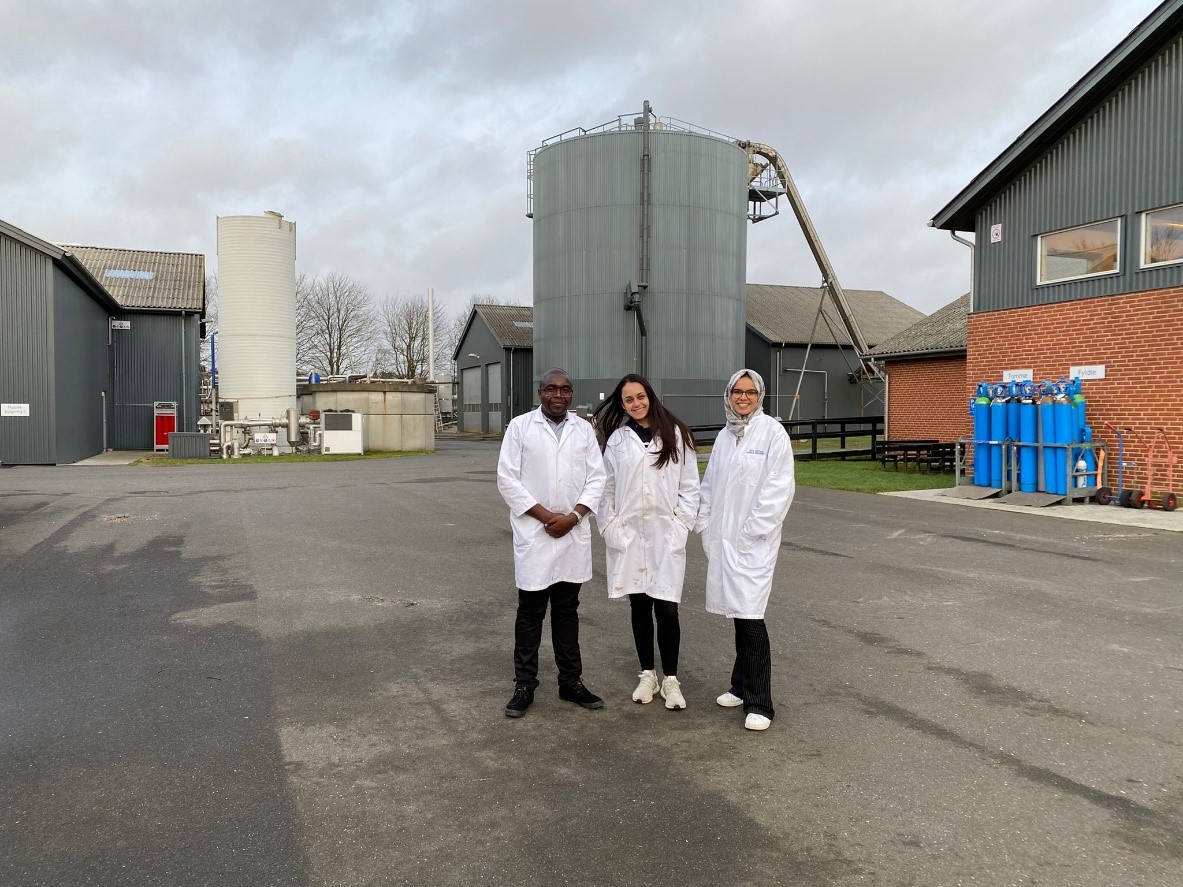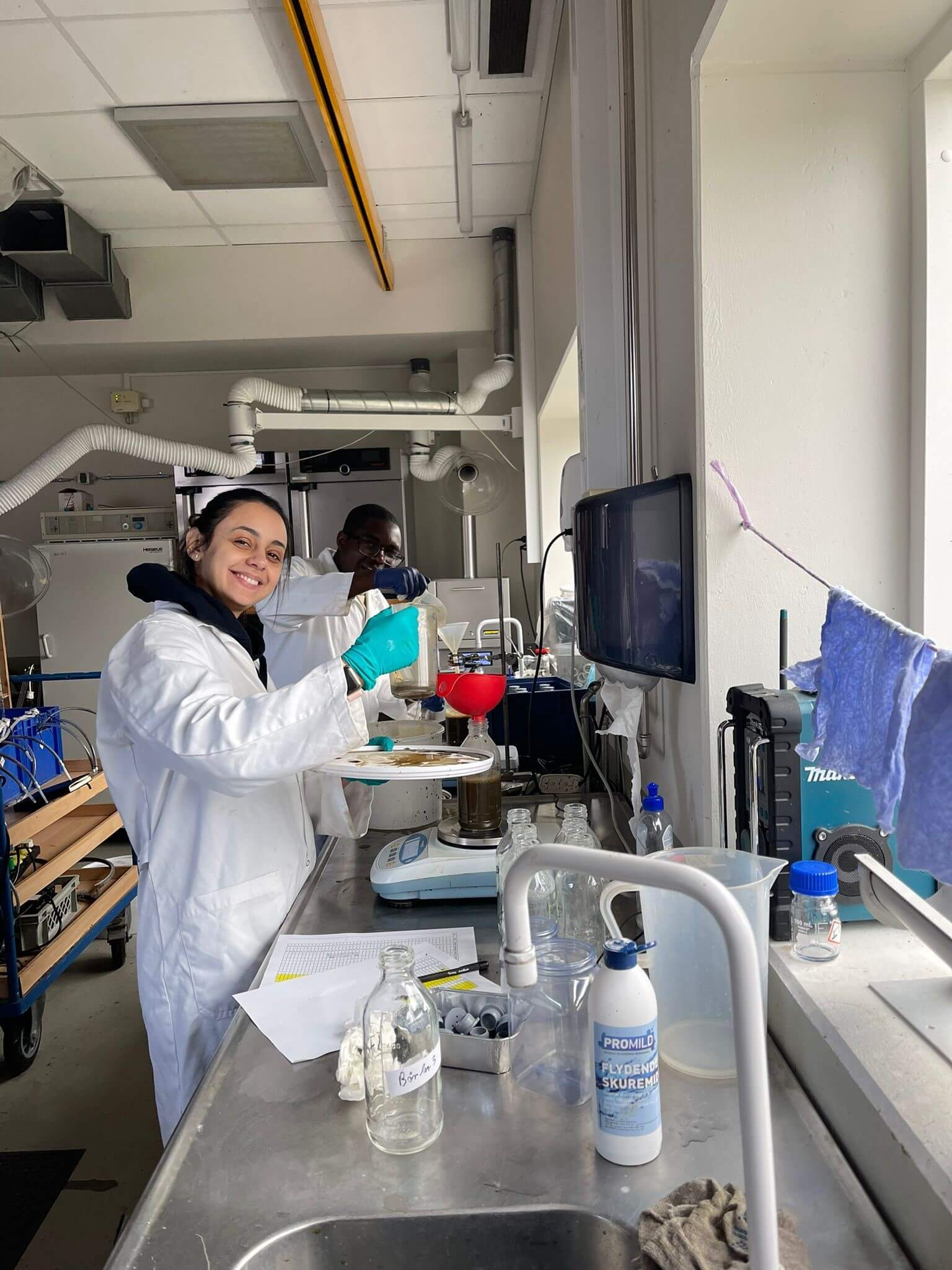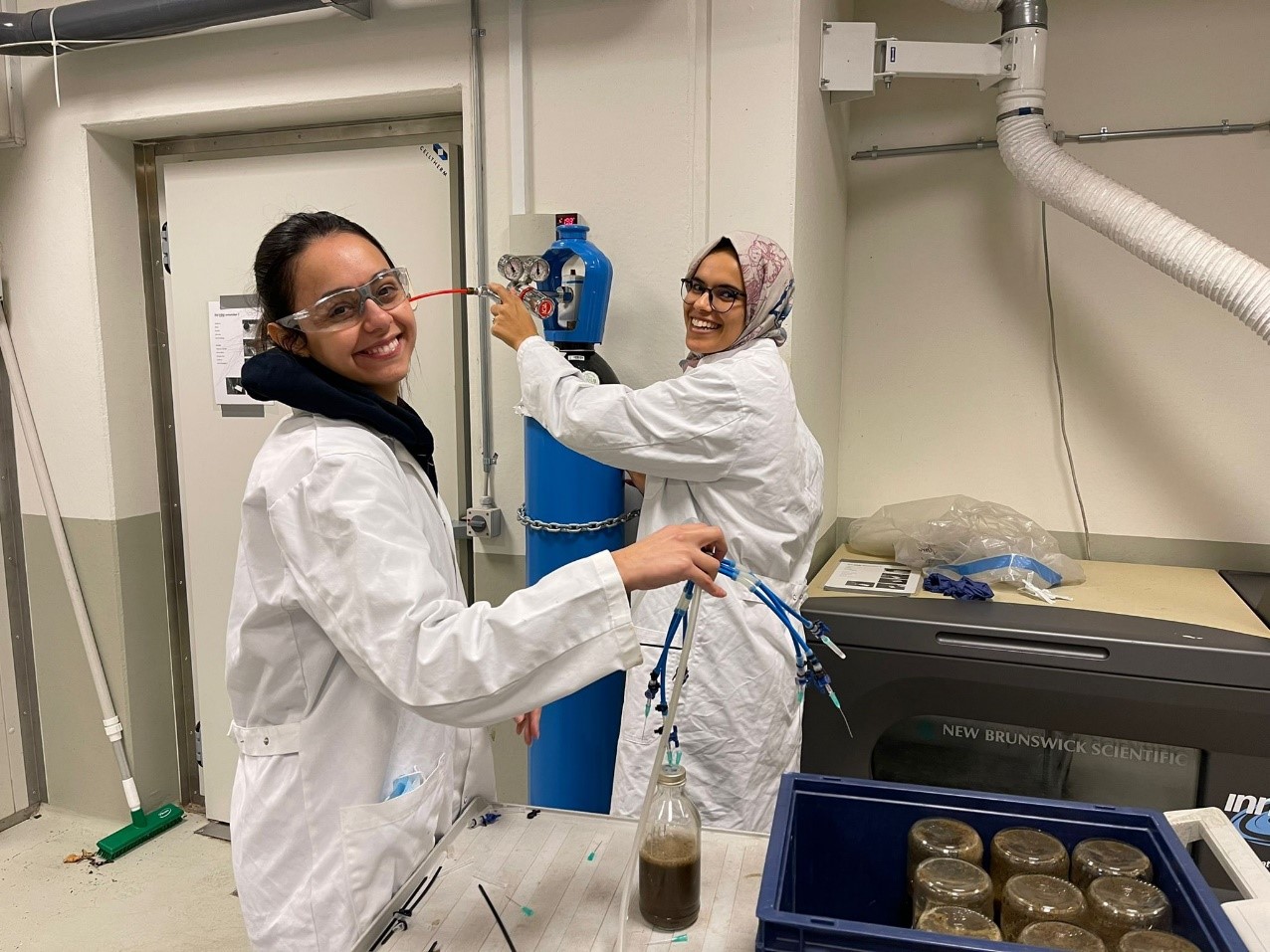Secondment at Aarhus University, Denmark, at the largest biogas test facility in the country
By Jihane EL Mahdi (ESR-1), Jared Nyang’au (ESR-3) and Hellen Luisa de Castro e Silva (ESR-5)

Aarhus University is hosting both Jihane EL Mahdi (ESR-1) and Hellen Luisa de Castro e Silva (ESR-5) for their secondment from February to April 2023. Jihane and Hellen will be collaborating with Henrik Møller, Peter Sørensen and Jared Nyang’au (ESR-3). During their secondment, they will be doing their research at the Biogas plant at Aarhus University Viborg, Research Centre Foulum. The biogas plant at the University is used for research on technologies for the management and treatment of animal manure and other substrates and for carrying out research in technologies for the separation of manure and biogas production in a wide range of biomass.
 The ESRs plan to use their period in Denmark to share their research ideas and research progress and collaborate in their experiments. Jihane is conducting an experiment on the anaerobic digestion of source-segregated dairy manure. In her previous work at WUR, Jihane found that source-segregated fractions yielded higher biogas than slurry. In the experiment at AU, she plans to investigate further the reasons behind the increased yield with source segregation compared to conventional systems. She plans to do this by analyzing the development of fiber degradation and monitoring the ammoniacal nitrogen and volatile fatty acids during the anaerobic digestion process. Jihane has set up lab-scale continuous anaerobic digestion and batch-test experiments.
The ESRs plan to use their period in Denmark to share their research ideas and research progress and collaborate in their experiments. Jihane is conducting an experiment on the anaerobic digestion of source-segregated dairy manure. In her previous work at WUR, Jihane found that source-segregated fractions yielded higher biogas than slurry. In the experiment at AU, she plans to investigate further the reasons behind the increased yield with source segregation compared to conventional systems. She plans to do this by analyzing the development of fiber degradation and monitoring the ammoniacal nitrogen and volatile fatty acids during the anaerobic digestion process. Jihane has set up lab-scale continuous anaerobic digestion and batch-test experiments.
Hellen is performing an experiment which aims to analyze the effects of copper and zinc supplementation in a two-step anaerobic digestion of cattle manure co-digested with wheat straw. It is known that the addition of oligo-elements might enhance the biogas yields and efficiency degradation of organic matter in the AD process of cattle manure, a nutrient-poor substrate. She plans to compare the effectiveness of different treatments containing varied concentrations of copper and zinc and a bio-supplement available in the market in a four-level-factorial design experiment using batch reactors. She also plans to investigate the effects of NH4+ and S, considered as inhibitors, when on higher levels in the anaerobic digestion process. In a parallel experiment, Hellen will use continuous reactors to understand the supplementation of oligo-elements in continuous stirred tank reactors, with the possibility of upscaling.
 Jared will continue his work on investigating the effects of pre-treatment technologies on nutrient availability in digestates. He will set up an experiment to evaluate the effects of the thermal pre-treatment of biomass prior to anaerobic digestion on nitrogen availability. The increasing use of recalcitrant substrates, such as straws for biogas production, results in problems associated with a high fraction of non-degraded organic matter in the digestates, such as high residual methane potential and low fertilizer value. As part of the solution, Jared will try to find out if exposure of such substrates to high temperatures prior to their utilization in anaerobic digestion can improve their degradation and hence increase both biogas yield and nutrient solubilization.
Jared will continue his work on investigating the effects of pre-treatment technologies on nutrient availability in digestates. He will set up an experiment to evaluate the effects of the thermal pre-treatment of biomass prior to anaerobic digestion on nitrogen availability. The increasing use of recalcitrant substrates, such as straws for biogas production, results in problems associated with a high fraction of non-degraded organic matter in the digestates, such as high residual methane potential and low fertilizer value. As part of the solution, Jared will try to find out if exposure of such substrates to high temperatures prior to their utilization in anaerobic digestion can improve their degradation and hence increase both biogas yield and nutrient solubilization.
